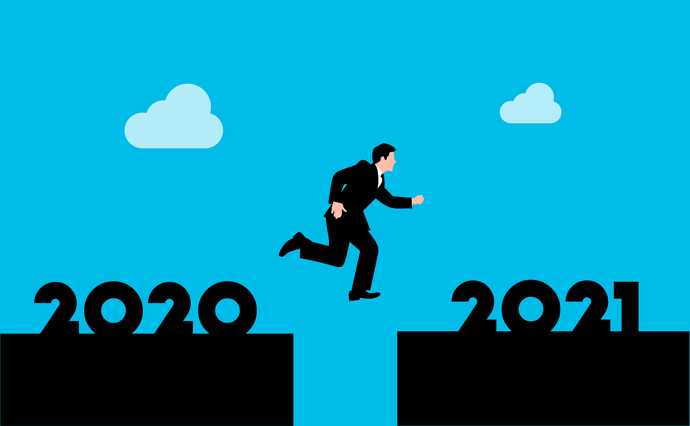HR Reflections and Resolutions for the New Year

HR Reflections for the New Year
2020 has been a challenging year and 2021 will continue to test our patience and resilience. The start of a new year is usually a time for people to take on new projects, either self-improvement based or professional development oriented. While change does not need an arbitrary date, there is however, a vast prevalence of the “fresh start effect” that follows important temporary landmarks that demarcates the passage of time, creating many new mental accounting periods each year. These dates relegate our imperfections to the past, induce people to take a big-picture view of their lives, and thus motivate aspirational behaviors.1
Perhaps more than ever, we need a fresh start after the year we have had. The promise of vaccines and a return to some semblance of normalcy has put high expectations on 2021. Each year millions of people make resolutions with the hope of ending bad habits and creating good ones. 2020 has definitely shone a light on what is important in our lives and given us all some clarity about how we should be interacting with our communities and how important relationships are in our lives.
Historically, most people have a pretty bleak record at sticking to their New Year’s Resolutions. According to the Washington Post, 20% of people abandon their resolutions after one week2. Research from the University of Scranton shows that more than 30% of people abandon their resolutions after one month2. More than 50% abandon them after 6 months. Eventually, only 8% of people achieve their stated resolution goals 2.
Many blame a lack of willpower as one of the main reasons for not keeping these resolutions. Research, however, shows that people fail to keep their resolutions either because they take on too many goals or take on goals that are not properly aligned to what matters to them3. So will 2021 be different? Perhaps we all have a better sense of self-awareness and what is important in our lives. Our resolutions this year may be more fundamental and achievable given what we have all learned about ourselves in 2020.
Realistic goal setting and the challenges this creates can be seen in business as well. A lot of organizations take on too many goals or goals that are not aligned with the rest of the organization’s objectives. Being in HR you might have noticed this happening, and how misaligned goals can get at different levels of the organization during execution.
So what can you do?
HR is in the best position to advise business leaders in your organization on these misalignments as well as use behavioral economics and data to help your organization reach some of these goals. Here are some examples how:
Employee engagement and recognition
If one of your HR goals is to focus on employee engagement, you can highlight how organizations with an engaged workforce directly contribute to the goals of their organization and use feedback tools and performance indicators to support that assertion with hard data. Demonstrating the performance of an engaged workforce through an online dashboard can be impactful for your management group. Recognition of employees efforts can also be made public and celebrated. Recognizing employees and their contribution towards business objectives makes them feel appreciated and 69% of employees report working harder towards business goals when they feel appreciated.
Wellness, Workplace flexibility, and Productivity
2020 has also put a spotlight on wellness and mental health. It may be the time to look at your own wellness programs in your organization. These programs are not only good for health insurance, but also improve productivity in the workplace as employees are able to cope more effectively with health and wellness issues they may face. Prioritizing health and taking time off helps employees decompress, and bring new ideas and problem solving to the business. Both employees and the organization benefit when an employee is taking care of their health and mental well being.
Gender and Diversity
Gender and diversity discussions continue to be prominent given the political climate in the world right now. Progress has been made but we have a long way to go. HR can play an active role in doing compensation and program analysis, and providing feedback to their senior executive teams on such initiatives. Bias is human, but overcoming it becomes possible when when we are all aware and mindful of its existence and proactively address it.
Being change agents is what HR does best. Let's make 2021 the year to push forward strategies that will benefit all of our work and personal lives.
